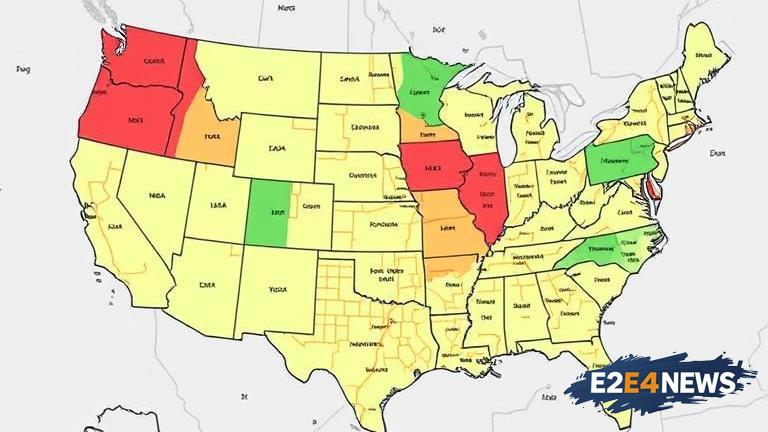A federal judge in Utah has made a landmark ruling, striking down the state’s partisan redistricting maps due to unconstitutional bias. The decision, which was handed down on August 26, 2025, marks a significant victory for voting rights advocates who have long argued that the maps were drawn to unfairly favor one political party over another. The judge’s ruling found that the maps, which were approved by the Utah Legislature in 2021, were the result of a deliberate attempt to gerrymander the state’s electoral districts. Gerrymandering, a practice in which electoral district boundaries are manipulated for political gain, is a highly contentious issue in the United States, with many arguing that it undermines the democratic process. The Utah case is just one of many similar disputes playing out in courts across the country, as advocates and lawmakers clash over the issue of partisan redistricting. The judge’s decision in Utah is likely to have significant implications for the state’s electoral landscape, potentially leading to a redrawn map that more fairly represents the interests of all voters. The ruling is also likely to be appealed, setting the stage for a potentially lengthy and contentious legal battle. The issue of partisan redistricting has been a major point of contention in Utah, with many arguing that the current maps are unfair and disenfranchise certain groups of voters. The judge’s decision is a major victory for these advocates, who have been fighting for years to have the maps thrown out. The ruling is also a significant blow to the Utah Legislature, which had argued that the maps were fair and constitutional. The decision is likely to have significant implications for the state’s upcoming elections, potentially leading to a shift in the balance of power in the Legislature. The judge’s ruling is based on a thorough analysis of the mapping process, which found that lawmakers had intentionally manipulated the boundaries of electoral districts to favor one party over another. The ruling also found that the maps were drawn with the intent to dilute the voting power of certain groups, including racial and ethnic minorities. The decision is a major victory for civil rights groups, who have long argued that partisan redistricting is a form of voter suppression. The ruling is also likely to have significant implications for the broader debate over voting rights in the United States, potentially paving the way for similar challenges to partisan redistricting maps in other states. The issue of partisan redistricting is highly complex and contentious, with many arguing that it is a necessary evil in the pursuit of political power. However, others argue that it is a corrupting influence on the democratic process, allowing lawmakers to choose their voters rather than the other way around. The judge’s decision in Utah is a significant step forward in the fight against partisan redistricting, and is likely to be closely watched by advocates and lawmakers across the country. The ruling is also a testament to the importance of an independent judiciary, which is able to make decisions based on the law rather than political considerations. The decision is likely to be appealed, but for now, it stands as a major victory for voting rights advocates in Utah. The state’s electoral landscape is likely to be significantly altered as a result of the ruling, potentially leading to a more fair and representative system. The judge’s ruling is a significant blow to the practice of partisan redistricting, and is likely to have far-reaching implications for the democratic process in the United States. The decision is a major step forward in the fight against voter suppression, and is likely to be celebrated by civil rights groups and voting rights advocates across the country.



